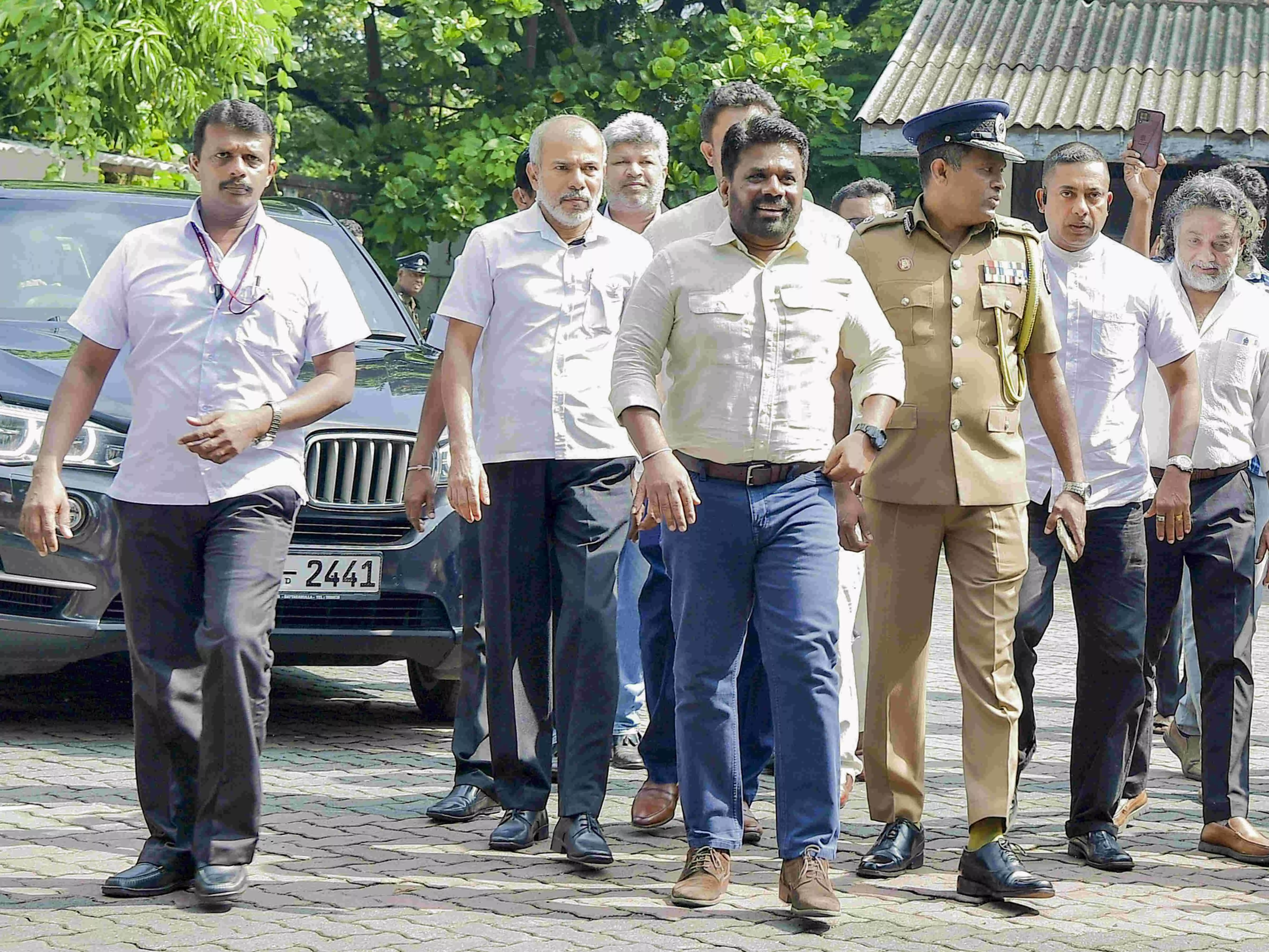At the crossroads

Sri Lanka now stands on the cusp of a transformative era with the landslide victory of Anura Kumara Dissanayake's National People's Power (NPP). Coming on the back of an unprecedented parliamentary majority, the NPP's triumph symbolises people’s resounding rejection of traditional political dynasties and their ineffective governance. This indeed appears to be a turning point for Sri Lankan politics and society. The country’s feeble economic trajectory will hopefully get a revamp under the new regime. The NPP's rise is historic in many ways. For the first time, a party rooted in the Sinhala-majority south has broken barriers in the Tamil-dominated north. This shift suggests a rising resonance of the NPP's inclusive and reformist agenda among ethnic minorities, who have traditionally been sidelined in Sri Lanka’s politics. By focusing on combating corruption, poverty alleviation, and promising structural reforms, the party has managed to transcend the identity politics that has fragmented the nation for decades. No less importantly, the remarkable victory also reflects a broader rejection of the political elite. The Rajapaksa family's stranglehold over Sri Lankan politics, which began in mid-2000s, has finally been broken. Alongside this, figures like Sajith Premadasa, who once posed solitary opposition to the Rajapaksas, have also been cast aside by an electorate eager for fresh leadership. Dissanayake’s ascension from the leader of a small opposition group to a broadly accepted national figure is reflective of the people’s hunger for change after years of political hegemony and economic mismanagement.
However, this is just the beginning of a broader battle for the NPP. The mandate it has received puts it in a responsible position demanding swift and tangible results. Sri Lanka's economy is teetering on the brink, faced with inflation, high foreign debt, and depleted reserves. The island nation requires structural reforms, international negotiations, and domestic policies that strike a fine balance between growth and equity. The economic crisis has hurt ordinary citizens the most, and the new government must ensure that its policies do not disproportionately burden the vulnerable. The political landscape, too, poses its own set of hurdles. While the NPP has made significant inroads in Tamil and Muslim-majority regions, its historical opposition to Tamil self-determination casts a long shadow of mistrust. The party must effectively deal with the delicate task of restoring trust among minorities, many of whom remain sceptical of its intentions. Fulfilling promises of reconciliation and addressing long-standing grievances, such as the devolution of powers under the 13th Amendment, will be of critical importance. On the contrary, failure on this front will risk undoing the goodwill the NPP has worked so hard to cultivate. Geopolitics adds yet another layer of challenge. Sri Lanka’s strategic location in the Indian Ocean places it at the centre of a tug-of-war between India and China. Dissanayake’s pro-China leanings, coupled with his party’s history of scepticism toward India, raise questions about the future of bilateral relations with India. However, his recent overtures toward India, including reassurances about maintaining regional stability, demonstrate that he is willing to adopt a pragmatic approach. In the modern-era diplomacy where things are so delicately entangled, Dissanayake’s regime would do well to maintain a much-required geopolitical balance in the region by assessing the nation’s interests with wisdom.
Dissanayake’s victory offers Sri Lanka an opportunity to redefine its future, but it also comes with risks of failure. The overwhelming mandate should not tempt the NPP to concentrate power and enact policies that erode democratic freedoms. The regime is also expected to stand true to its promise of abolishing the Executive Presidency, which has been a long-standing demand of many Sri Lankans. It remains to be seen whether NPP’s victory becomes a genuine turning point or just another chapter of unmet expectations. The stakes have never been higher, and the path forward demands both courage and caution from Sri Lanka’s new leadership.



